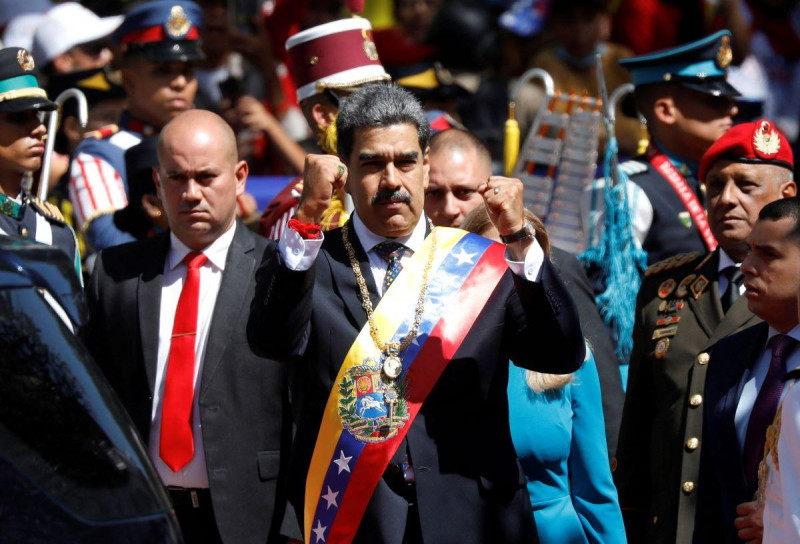The tension in Venezuela is palpable as the United States continues to bolster its military presence in the region. With a growing number of troops and warships stationed near Venezuelan shores, many are left wondering if this is just saber-rattling or the prelude to something far more sinister. The Maduro regime has been quick to condemn these moves, accusing Washington of imperialist ambitions and threatening retaliation. But with Venezuela's economy in shambles and its military weakened by years of sanctions and internal strife, it’s hard not to see this as a David versus Goliath scenario.
On the streets of Caracas, life goes on amidst the backdrop of heightened tensions. Long lines at gas stations and empty shelves in supermarkets are now commonplace, a stark reminder of the country's ongoing economic crisis. The Maduro government has been scrambling to secure food and medicine from sympathetic nations like Russia and China, but with each passing day, it becomes clearer that these lifelines may not be enough to stave off total collapse.
The US military buildup is ostensibly aimed at countering what they call "Russian and Chinese influence" in the region. However, many analysts see this as a veiled attempt to destabilize Maduro's regime and pave the way for regime change. The rhetoric from both sides has escalated dramatically over the past few weeks, with each new deployment of troops or ships serving as a provocative gesture designed to ratchet up pressure on the other side.
Meanwhile, the humanitarian crisis in Venezuela continues unabated. With millions facing food and medical shortages, international aid organizations are struggling to get supplies into the country despite Maduro's restrictions on foreign assistance. The situation is so dire that some experts predict a mass exodus of refugees if conditions worsen further, potentially destabilizing neighboring countries like Colombia and Brazil.
The US has also been working closely with opposition leaders within Venezuela, providing them with training and resources to challenge the Maduro regime. This covert support has led to increased unrest in parts of the country, with frequent clashes between government forces and protesters. The international community remains divided on how to respond, with some countries calling for a diplomatic solution while others advocate for more aggressive action against Maduro's authoritarian rule.
As tensions continue to escalate, the world watches nervously. Will this latest round of saber-rattling lead to an actual conflict? Or will cooler heads prevail and find a way out of this dangerous situation? The answer may depend on how willing both sides are to step back from the brink and engage in meaningful dialogue.
For now, Venezuela remains a powder keg waiting for a spark. And with each passing day, it seems that spark is getting closer to igniting into an inferno that could reshape the entire region.



